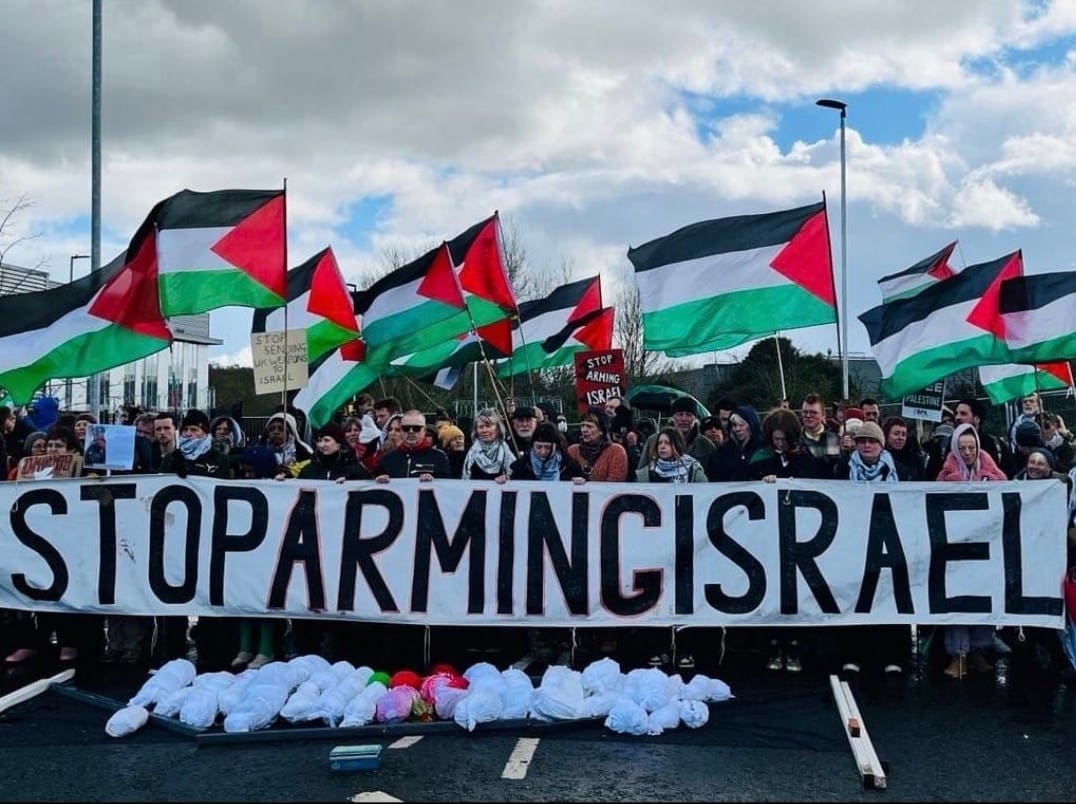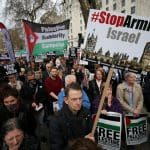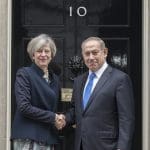
UK arms companies have long profited from selling weapons to Israel, with licenses issued from the British government. Since 2008, these exports have totaled an estimated $740 million, continuing even amid the ongoing genocide in Gaza. In protest, a Foreign Office official recently resigned over this policy of continued licensing.
Following the Labour Party’s July 2024 election victory, which promised alignment with international law, some were cautiously optimistic that an arms embargo would be forthcoming. In September 2024, the British government suspended 30 out of 350 arms export licenses to Israel. Activists and human rights groups argue that this is far too limited. Accordingly, this policy memo details Britain’s international legal obligations and potential governmental maneuvers regarding arms sales to Israel.
British Complicity Through Arms Trade
The UK is one of the world’s largest arms exporters. The Export Control Act 2002 and the Export Control Order 2008 regulate UK arms and dual-use items. Exports are currently prohibited without a license from the Secretary of State for Business and Trade. Licenses are granted, refused, or modified under the advice of the Foreign, Commonwealth & Development Office, the Ministry of Defence, and other relevant departments.
Attempts to implement a quasi-embargo that undermines its effectiveness would only serve Israel’s genocidal aims while creating the illusion of action for the British public Share on X
BAE Systems, one of the leading global arms corporations, is headquartered in the UK. The company has received significant government-funded research subsidies and maintains close ties with the UK government. In the Israeli context, BAE Systems is known for supplying parts for F-35 fighter jets. In 2009 and 2014, the UK government acknowledged that the Israeli military likely used UK-exported components and weapons in Gaza.
International Legal Obligations
The UK government has a clear legal duty to impose an arms embargo against Israel and halt all existing licenses. This duty arises from multiple intersecting international obligations in response to grave illegalities by the Israeli regime.
The International Court of Justice has established obligations that include non-recognition, cooperation, and genocide prevention. In line with these duties, the UK must assess its influence on the Israeli war effort.
An arms embargo is the first countermeasure necessary to fulfill the UK’s international obligations. The Human Rights Council Resolution 55/28 of April 2024 and statements by UN experts have reinforced this obligation. Additionally, since Israel uses imported weapons in ways that violate international humanitarian law, the criteria in the Arms Trade Treaty—which the UK ratified in 2014—to halt relevant licenses have been met.
What’s Next for the Labour Government?
While the Labour Party initially indicated a more favorable policy toward an arms embargo, later statements by Foreign Secretary David Lammy suggested otherwise. Following a meeting with Benjamin Netanyahu in Tel Aviv, Lammy spoke in Parliament against a total arms ban. On September 2, 2024, Lammy announced the decision to halt 30 of the existing 350 arms licenses to Israel. To justify the decision, the Foreign Office published a summary legal report.
One potential approach the UK may have adopted in determining which licenses to maintain is a dual legal structure that limits the scope of an embargo, similar to Germany’s, where different legal regimes exist for lethal and non-lethal weapons. According to this distinction, weapons components would be classified as “non-lethal” and exempt from any such embargo. As Oxfam researchers have warned since 2005, such distinctions are flawed and do not align with international law. Another possible distinction may be between defensive and offensive weapons, though experts have likewise contested this since the 1980s.
These distinctions are likely to be combined with a narrow interpretation of the UK’s legal obligations, imposing nearly impossible standards of evidence. The UK appears to be following the US’s approach, requiring that the link between specific weapons and legal violations be proven before suspending licenses. This approach could render accountability efforts redundant in a complex supply chain, besieged territory, and with a perpetrator known for evidence destruction. In the meantime, the Foreign Office’s legal analysis is notably weak and hardly defendable. It accepts that the legal premises of Israel’s engagement in Gaza are lawful. Underlying this position is a misinterpretation of the self-defense doctrine and dismissal of the International Court of Justice’s (ICJ) clear statements that Israel cannot defend itself against an area it occupies.
The UK is maintaining its role in the NATO F35 combat aircraft program, which supplies such parts to Israel. In his statement to the House of Commons, Lammy justified this exemption by stating that the UK’s participation in the program is “crucial to wider peace and security.” In this, he follows the lead of the US and other NATO states, whereby “peace and security” include maneuvers that serve their own geopolitical interests. This interpretation contradicts the ICJ’s position, which clearly states that security concerns can not override international legal obligations.
The UK has a duty to impose a total arms embargo. Attempts, such as those above, to implement a quasi-embargo that undermines its effectiveness would only serve Israel’s genocidal aims while creating the illusion of action for the British public.
Recommendations
The UK must be reminded of its international legal obligations. Civil society organizations and grassroots groups should be wary of any attempts to create the façade of a quasi-embargo that falls short of protecting the Palestinian people. Accordingly, they should pressure the British government to take the following steps:
- Suspend arms sales to Israel: Implement a full moratorium on arms sales to Israel until it ceases to violate Palestinian rights.
- Halt arms licenses: Immediately suspend all existing and prospective arms licenses that permit direct or indirect transfers of arms to Israel.
- Maintain consistency with international law: Suspend any and all efforts to introduce legal classifications that differentiate weapons in ways that contradict international obligations.
- Strengthen end-use certification: Introduce rigorous end-use certification requirements for all arms licenses and measures to prevent arms diversion.













